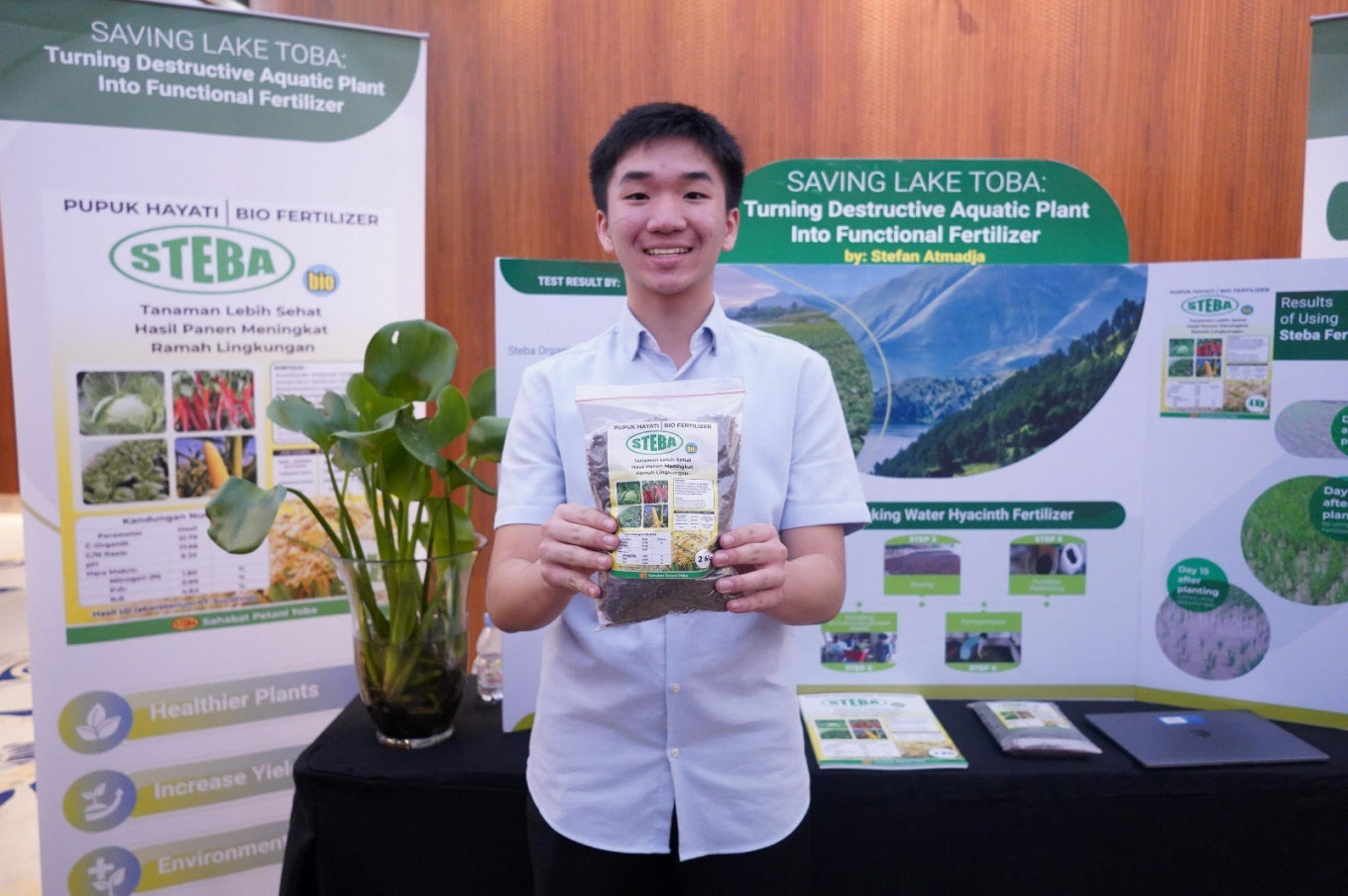Popular Reads
Top Results
Can't find what you're looking for?
View all search resultsPopular Reads
Top Results
Can't find what you're looking for?
View all search resultsHigh school student aims to save Lake Toba by turning water hyacinth into bio fertilizer
Twelve students presented ideas and real actions that brought meaningful change to the Earth, in a symposium event held by the Jakarta Student Symposium (JSS).
Change text size
Gift Premium Articles
to Anyone
T
welve students presented ideas and real actions that brought meaningful change to the Earth, in a symposium event held by the Jakarta Scholars Symposium (JSS).
The symposium titled Saving our Earth was held at Soehana Hall in Jakarta on May 24.
The JSS is an independent, non-profit coalition dedicated as a forum for young people to lead their generation in creating awareness of topics that are most relevant and of concern to the world today.
Wednesday's event was the first symposium for JSS, presenting 12 works that are real solutions to problems that are of global concern. Participants not only presented ideas according to their respective interests, but also demonstrated the results of real actions that have proven their effectiveness and influence in bringing about change.
The 12 works that were presented covered various categories, such as environment and nutrition. These projects include business projects to reduce carbon footprint, clean water conservation projects and fortified rice development projects.
One of the standout works that has received much appreciation is the work of Stefan Fredrick Atmadja, who turned eceng gondok (water hyacinth weed) that devastated Lake Toba in North Sumatera into a biofertilizer for local farmers.
Stefan developed an organic fertilizer which he named Steba, short for Sahabat Petani Toba (Friends of Toba Farmers). The biological fertilizer has been tested, with results showing the quality as above average and can increase farmer productivity.
The project started with Stefan's concern when he saw the picturesque Lake Toba covered with water hyacinth.
“Even though Lake Toba, the largest volcanic lake in the world, is very beautiful and is one of UNESCO’s Global Geoparks, unfortunately it is covered by water hyacinths whose growth is not controlled," explained Stefan, a grade 11 student at the Jakarta Intercultural School (JIS).
“The water hyacinth that covers the lake causes three significant problems. First, the density of water hyacinths blocks sunlight, blocking the photosynthesis process of organisms in the lake. Second, they reduce oxygen levels, which will inhibit the growth of other living beings. And third, the problem of tourism, as it can reduce the beauty of the scenery which will then result in a decrease in tourism attractiveness," he said during the presentation.
Stefan emphasized that the aim of running the project is to restore the beauty of Lake Toba, while at the same time transforming the invasive water hyacinth into something that can benefit the local community.
“That is by collecting and processing the water hyacinth into fertilizer. The nitrogen content in water hyacinth is quite high, which of course is a good material for fertilizer," he explained.
Apart from obtaining laboratory test results from Sucofindo, this biofertilizer product has even been used by a number of farmers in the Lake Toba area.
"Based on the research I did, the use of water hyacinth fertilizer on rice plants accelerates rice growth compared with those who do not use this fertilizer. I hope this project can have an impact on increasing the productivity of farmers, and at the same time making the lake beautiful again and maintaining the value of Indonesian tourism," he added.
In his presentation, Stefan explained the process of how the fertilizer was made from the water hyacinth plant, which is considered a weed, starting from the collection, chopping and drying to the fermentation process.
The symposium was also attended by Sally Kailola, head of communications at the Nusantara Nature Conservation Foundation (YKAN), who expressed her appreciation of the event.
"After witnessing the presentations given by the students, I am very impressed and proud at the same time. This is an extraordinary leap, where students as the younger generation have made a real contribution, namely solutions to the problems found. They are the ones who will make changes in the future,” she concluded.











